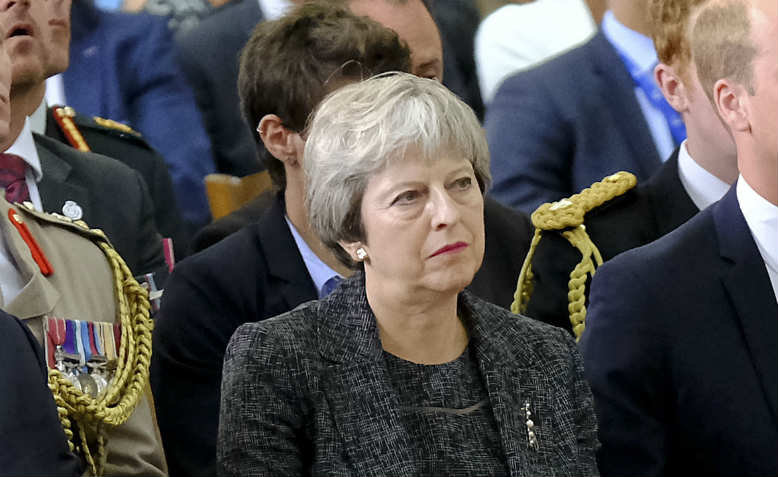 Theresa May, UK Prime Minister. Photo: Flickr/Number 10
Theresa May, UK Prime Minister. Photo: Flickr/Number 10
Theresa May clinching the confidence vote solves nothing for her or the country, argues John Rees
Theresa May needed the support of 159 Tory MPs to remain as leader of the party. She managed to get just 41 more votes than that. And this included 140 MPs who owe their government jobs to her patronage.
With well over one third of her own party voting to get rid of her, this cannot conceivably be seen as a strong and stable base from which she can lead the government.
And even to scrape this victory May had to promise that she will be gone before the next general election.
Like everything else the Prime Minister does these days, this has simply bought a little time without fundamentally addressing any of the issues that threaten to overwhelm her administration.
Just to mention the most obvious problem: there is no Parliamentary majority for the Brexit deal and that is precisely the issue which sparked this leadership vote in the first place. The hardline Brexiteers, with their typical tactical acuity, may have shot their bolt and missed, but this is hardly likely to make them more supportive of the May leadership in anything but rhetoric.
Indeed, it may force them to the conclusion that if they cannot replace May by internal party mechanisms, then they will have to break ranks on the floor of the House of Commons and inflict a more serious defeat on her.
And the problem that lies behind all the other problems, the fact that the majority in the referendum voted Leave while the majority of MPs in the House of Commons want to Remain, is still unresolved.
There is no Commons majority for May’s deal, or for a hard Brexit, or for a second referendum, or at the moment, for a general election.
The entire political establishment is therefore paralysed, and May’s narrow victory in the Tory election contest will not change that fact.
Indeed, bar a few hours of false euphoria, May’s deal will go down to defeat when it is put to the Commons in the New Year.
It is now more than likely that it will take either a seismic shift in the behaviour of MPs, however unlikely that might seem, or the force of an exterior shock, before the political system can make any decision at all.
It might be the case, for instance, that the pound and the markets react so badly to the Commons voting down May’s deal that MPs are forced to find a new way forward.
But it is certainly the case that now is the time for the labour movement and extra-parliamentary forces to play an important role. When the political establishment is frozen, the streets can speak.
Labour’s leadership were proven completely correct in not being bamboozled into a premature vote of confidence. Many of those advocating it, including within the Labour Party, simply wanted such a vote to fail, paving the way for a second referendum.
Such a course would inevitably rule out a general election in any near timescale.
Yet it is precisely a general election which is the best hope of ending austerity, a far bigger question for most working people than the Brexit debate. It is the only way in which any substantial transformative programme can be initiated.
All efforts must now be focused on a mass campaign to demand a general election. That is the immediate and pressing task in hand. The Tory government, and indeed the entire political class, have shown that they are incapable of governing the country in the interests of the majority. It is time that the labour movement and working people more generally stop being mere spectators of the car crash which is establishment politics and take events into their own hands.
Only such a movement can break the logjam into which politics in this country has descended.

